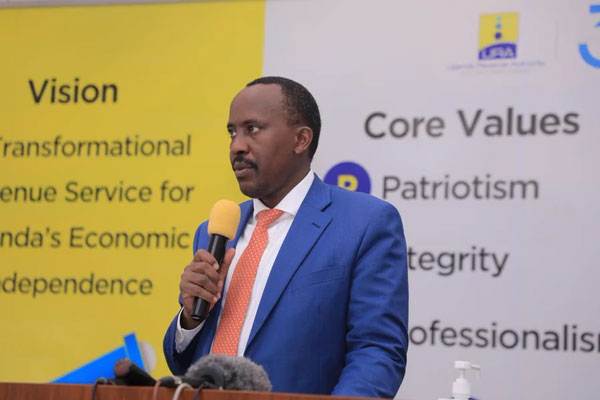
Kampala, Uganda | THE INDEPENDENT | Civil society organizations have accused the Uganda Revenue Authority (URA) of failing to implement its policies and external advice to improve the administration of tax.
The organizations under the Tax Justice Alliance Uganda (TJAU) say that this has in turn led to poor revenue mobilization and stifled service delivery, both at the national and subnational levels.
TJAU was established in 2014 to mobilize CSOs in Uganda to come together and deliberate on tax issues and pool human, financial, and technological resources for common and/or joint action.
Since then, the alliance has spearheaded civil society debate and engaged different stakeholders, including the URA and the Ministry of Finance, Planning, and Economic Development, on tax issues in Uganda.
The alliance hails the ministry for giving them space to advise on what a just tax system or a system the nation wants should be.
However, despite the engagements, the organizations say a lot is left wanting in the implementation of budgets and tax policies.
At a review of the TJAU Strategic Plan 2024-28 organised by SEATINI Uganda in Kampala, Julius Arugu, the leader of the Public Affairs Centre of Uganda, said the government though Uganda Revenue Authority, cares about taxpayers in Kampala or the large organisations as shown in their taxpayer appreciation awards.
He claimed also that the ministry and URA have failed to involve the public in the budgeting program, adding for example, that the government comes to the public at the budget conference when it has already decided on what it is going to do, instead of consulting the public before.
The taxpayer appreciation week is held by URA annually to recognize star players in tax paying and revenue mobilizing over the year, and the recent overall winner was Coca-Cola Beverages Uganda.
The Ministry of Finance also holds a budget conference to launch the budget plan for the next financial year, with the one for the 2024/25 budget having been held in September.
Finance Minister Matia Kasaija said then that the budget for next year will total 52.7 trillion shillings.
Marie Nanyanzi, the senior program officer at Twaweza East Africa hailed the consultations by the ministry and URA for giving CSOs a chance to understand the technicalities involved in the budgeting processes.
She, however, says there is still a need to educate the public in some parts of Uganda where some do not know about URA.
Some CSOs also cited political interference in the administration of tax and revenue mobilization, which means that revenue authorities find it hard to raise the targets.,
Charles Kasibante, the Executive Director, of South Buganda Anti-Corruption Organisation, gave the example of President Yoweri Museveni’s directives on charges on taxi and bodaboda operations.
He says this has, for example, denied Masaka City more than sh70 million per month in revenues, yet the public transport association raises a lot of money from the charges they make on the drivers daily.
Kasibante also accused URA of giving tax assessments on traders without evaluating the worth or returns of the businesses, which makes it hard for the traders to comply.
He also urged URA to sensitize Ugandans on the use of the Tax Identification Numbers (TIN), saying that most TIN holders have since forgotten their security codes because they do not use them.
Kasibante said this is one of the reasons Ugandans get calls and text messages about tax arrears that they do now have an idea about because they do not use their TINs to file returns.
The views and concerns of the CSO representatives are to be presented to the ministry and URA at their next engagements to be part of the implementation of the domestic revenue mobilization in the coming financial year.
****
URN
 The Independent Uganda: You get the Truth we Pay the Price
The Independent Uganda: You get the Truth we Pay the Price


